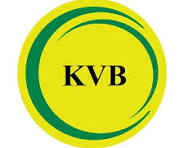The National Herald saga—once thought to be relegated to the archives of post-Independence political history—has made a dramatic return to the national spotlight. This time, it trails allegations of financial mismanagement that point directly to the Gandhi family. The Enforcement Directorate (ED) has implicated Sonia Gandhi and Rahul Gandhi in what it describes as a covert scheme to redirect assets valued at ₹5,000 crore, a revelation the Bharatiya Janata Party (BJP) is calling a prime example of Congress’s enduring legacy of corruption, entitlement, and dynastic privilege.
But this shadowy affair has its roots in the early days of the Republic. As far back as 1950, Sardar Vallabhbhai Patel—India’s Iron Man—had already sounded the alarm. In correspondence exchanged that May, later published in Sardar Patel’s Correspondence, he raised concerns about the National Herald’s fundraising operations. Patel explicitly advised Prime Minister Jawaharlal Nehru against using government channels to attract questionable funds, cautioning that such actions could lead to ethical and financial compromises.
Nehru’s response was vague and unconvincing—he claimed ignorance and offered little more than lukewarm promises of an inquiry. To many, this confirmed Patel’s worst suspicions. His cautions were ultimately dismissed, setting the stage for what critics now view as a long-standing culture of impunity within the Congress Party.
Fast forward to the present, and those early warnings seem to have materialized. BJP leaders argue the current controversy represents a massive financial fraud disguised as corporate restructuring. Sonia and Rahul Gandhi, through their control of Young Indian Ltd., stand accused of exploiting legal loopholes to gain control over the defunct National Herald’s substantial assets. According to the ED, this was no clerical mishap but a calculated misuse of political influence for personal gain.
Patel’s concerns crystalized on May 5, 1950, when he wrote to Nehru regarding a ₹75,000 donation to the Herald from associates of Himalayan Airways—a company that had secured a government deal despite objections from the Indian Air Force. This was, some say, one of the earliest instances of political favoritism. Patel didn’t mince words. He noted that one donor, Akhani, had been implicated in bank fraud, and he flagged the involvement of Union Minister Ahmed Kidwai, who was reportedly soliciting funds from controversial businessmen in Lucknow, including J.P. Srivastava.
Nehru’s reply on the same day deflected responsibility, suggesting that his son-in-law, Feroze Gandhi—then the General Manager of the Herald—would handle the matter. Experts later described Nehru’s tone as vague and dismissive.
Patel, however, remained persistent. On May 6, he followed up with another letter, challenging Nehru’s response and asserting that the donations had no charitable purpose. “There is no element of charity in them,” he wrote firmly. Nehru’s subsequent reply attempted further distancing, claiming he had not been involved in the newspaper’s finances for years and had delegated oversight to a woman named Mridula. While admitting the possibility of “mistakes,” he minimized the situation as a business issue rather than one of ethics or accountability.
Swamy’s Legal Pursuit and BJP’s Broader Narrative
Dr. Subramanian Swamy, a senior BJP figure and the key petitioner in the case, has long maintained that the Gandhis orchestrated a “systematic conspiracy” to appropriate public property. His stance dovetails with the BJP’s larger accusation—that the Congress operates as a dynastic outfit where power is routinely exchanged for personal benefit.
Congress’s retort—that this is a politically motivated witch-hunt—seems weak when weighed against historical records and the ED’s documentation. The BJP is leveraging this moment not only to underscore the legal dimensions but also to shine a light on what it calls a moral breakdown within the Congress ranks. This isn’t just about a monetary scandal—it’s a reckoning with a culture of privilege and disregard for institutional norms.
By spotlighting Patel’s decades-old caution, the BJP seeks to draw a line between the nation-first ethos of India’s founding leaders and the self-serving politics they argue define today’s Congress. What began as a legal case has now transformed into a symbolic confrontation—between ideals and entitlement, principle and power.
Reference : https://www.oneindia.com/india/the-national-herald-bombshell-how-the-gandhis-face-the-heat-of-a-scandal-foretold-by-sardar-patel-4126951.html
 Newspatrolling.com News cum Content Syndication Portal Online
Newspatrolling.com News cum Content Syndication Portal Online







